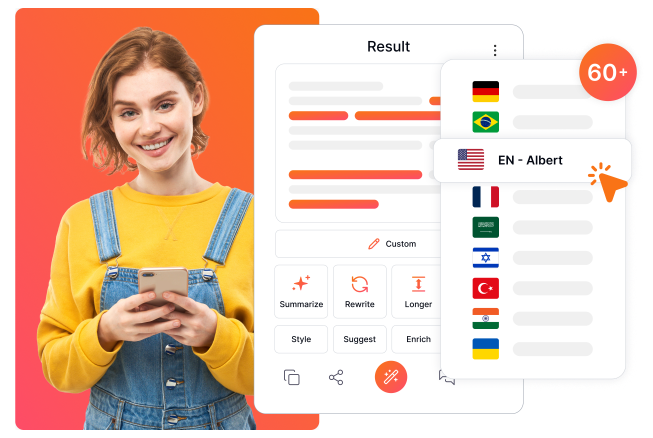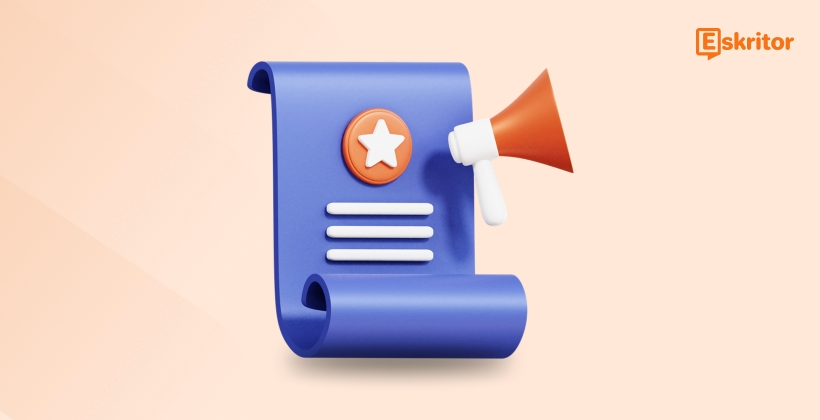How AI Writers Are Transforming Content Creation
How AI Writers Are Transforming Content Creation
Blog Article
Why AI Writers Are Essential for Modern Businesses
Artificial intelligence (AI) publishing technology has changed fast in the last decade, reshaping the way in which we build and interact with prepared content. From syntax modification instruments to AI-generated novels, the possibilities look limitless. But wherever just is that technology going? Let's investigate the improvements, issues, and potential potential of ai grammar checker.

How AI Publishing Technology Operates Nowadays
At their key, AI writing technology relies on Normal Language Control (NLP) and machine learning. These technologies allow designs to understand, produce, and increase human language. Resources accessible nowadays excel at jobs like:
1. Content Formation
AI has reached a point where it may create total blog threads, social media marketing captions, and even media articles. Some models are capable of mimicking individual writing models therefore effectively that distinguishing between AI- and human-written content has become increasingly difficult.
2. Syntax and Type Recommendation
AI-powered publishing assistants don't only check for syntax and spelling errors; additionally they provide suggestions to enhance tone, quality, and syntax, creating complex writing accessible to a broad audience.
3. Sentiment Analysis
AI may assess the mental tone of an item, enabling corporations to evaluate how their communications may resonate with readers. This really is particularly of good use in advertising and client interaction.
The Current Trends in AI Writing Technology
Many styles are surrounding the next phase of AI-powered publishing resources:
• Personalization
AI publishing technology is increasingly capable of tailoring content to personal preferences. Versions can adjust to a user's publishing fashion, ensuring the production thinks authentic.
• Multilingual Abilities
Many AI tools are growing their international reach by offering increased interpretation features and help for multiple languages.
• Improved Study Functions
AI tools now possess the capacity to analyze substantial amounts of knowledge and offer fact-checked, well-researched publishing in seconds, simplifying the process for specialists in industries like legislation, financing, and journalism.
What the Potential Keeps for AI Writing Engineering
1. Increased Imagination
While recent AI is successful at generating content, their creativity remains limited by designs within their instruction data. Future AI is not just expected to assist but to create unique, informative operates that problem individual imagination.
2. Seamless Effort
Imagine an AI that performs along side you in real-time, finishing your sentences, doing stay edits, and actually brainstorming ideas. AI publishing resources may possibly shortly become co-authors, enabling creativity to flow uninterrupted.
3. Moral and Accessible Design
With rising issue about plagiarism, misinformation, and prejudice, designers will work toward more translucent AI instruction procedures and moral implementation. Future methods will probably provide more comprehensive details and procedures to make certain accountability.
Difficulties and Concerns
The evolution of AI publishing engineering is not without hurdles, including:
• Moral Problems

Who possesses content developed by AI? How can we guarantee AI-generated material isn't distributing misinformation? These debates remain unresolved.
• Human-AI Balance
May AI complement individual imagination or completely change certain tasks? Many writers and musicians worry about their relevance in a AI-driven world.
• Accessibility Split
Not all agencies or regions have similar usage of cutting-edge AI tools, increasing questions concerning the impact of the technology on global inequality.
Changing the Way We Write
AI publishing technology remains in its infancy compared to their potential. Whether you're students crafting essays, a material marketer targeting specific readers, or even a novelist seeking creativity, AI methods will continue to revolutionize the publishing process. The following decade claims breakthroughs that mix individual ingenuity with device intelligence, developing a future wherever writing is more effective, accessible, and impactful than actually before.
Report this page